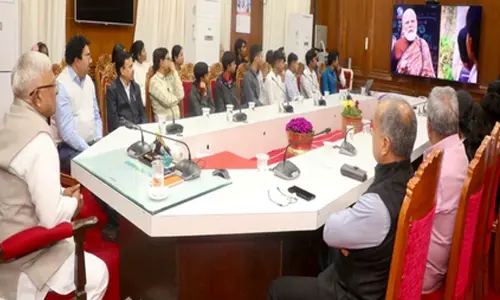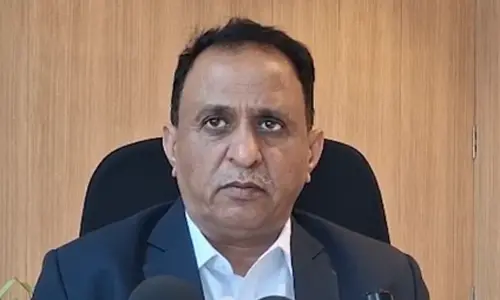Losses - Real and Perceived
Finally, the Central Bureau of Investigation (CBI) Special Court has pronounced the much-awaited verdict on the 2G scam criminal case filed by the CBI. And a sensational case,
Finally, the Central Bureau of Investigation (CBI) Special Court has pronounced the much-awaited verdict on the 2G scam criminal case filed by the CBI. And a sensational case, which rocked the nation for over seven years, has, all at once, fallen flat on its face. Followers of the accused are claiming that their leaders stood the ordeal by fire. The CBI says it will go in appeal.
Why did the prosecution fail? Clearly because of the inability of the investigating agency to produce credible and adequate evidence in support of its charges. The Court felt that the allegations were based on presumptive calculation of loss incurred by the central government which was untenable. Similar perceived losses made headlines in Coal Scam too.
I do not intend to comment on whether the government of the day followed the proper procedure and adopted the correct methodology in the spectrum allotments and whether there were any mala fide behind the decision taken. One cannot come to any conclusion on such issues without an opportunity to examine the connected papers in close detail. My focus is on the numbers arrived at by the Comptroller and Auditor General (CAG), the method it adopted to compute the perceived loss and whether it was a scientific method.
In the 2G spectrum sale, the CAG estimated that the government had lost Rs 1.76 lakh crore. In its charge-sheet, the CBI pegged the loss at Rs 31,200 crore. The Telecom Regulatory Authority of India (TRAI) said that the government had actually gained over Rs 30,550 crore by selling the 2G spectrum. All these organisations are government organisations. Still such a variance in figures. The CAG arrived at 1.76 lakh crore by comparing the proceeds of the auctions conducted in 2010 with the same in 2008.
Disagreeing with that calculation, the CBI took 2001 as the base year and arrived a loss of Rs 31,200 crore i.e., 18% of CAG's figure. Such presumptive losses, calculated on the basis of notional assumptions, are notoriously unreliable – as they are not grounded on any accepted or scientific scale of measurement. Many variable parameters, such as the period of time, the demand in the market, the awareness generated about the auction and the stature of players concerned, etc., are not comparable.
Consider the case of a film hero who acts in a movie for a remuneration of Rs 1 crore. Let us say the film is a box office hit making the hero well-known and saleable in the eyes of the distributors.
Consequently, another producer offers the hero Rs 5 crore for another movie. Can that hero then claim that he was cheated by earlier producer of the differential amount of Rs 4 crore as that represents the defference the between his notional value and the actual amount paid?
Similarly, take the case of a government which disposes of an extent of 10 acres of land for Rs 1 crore. A year later, following an announcement that a private housing project is to come up near that site, the value of that land goes up to Rs 10 crore. Then can it be argued that the decision taken by the government has caused the loss of Rs 9 crore to the exchequer and what if a Public Interest Litigation (PIL) case is filed in a court on that basis?
In any case, all these charges are being levelled against governments on the basis of decisions actually taken and imaginary losses caused thereby. What, then, about the decisions not taken? Is there any record of litigation involving charges levelled against the governments, or the other public agencies, based on account of the cost of inaction or postponement of decisions?
Take the instance of an irrigation project. Completed in time, it would irrigate thousands of acres, resulting in a good harvest and the betterment of economic condition of the farmers who are dependent on the produce of those lands. On account of procrastination on the part of the government in decision-making relating to the project and delays in release of funds, while it is under its execution, there are cost and time overruns.
The project remains incomplete for 10 or 15 years and, on account of the delay, water does not reach the lands, crops are not grown and, to meet the short-fall in production, the government is forced to resort to import of food grains. And, meanwhile, the farmers who had borrowed money, in the hope of reaping good havents, had to face acute economic distress and committed suicides consequently.
Also, the cooperative banks, which had extended loans to the farmers, suffered losses and shut down, causing totally acute hardships to their depositors and employees. Is anyone attempting to quantify such costs, or those responsible being called upon to explain the unfortunate consequences of their inaction?
This reminds me of the story about the person who was once asked how many people worked in his office. His reply was “.....about half of them!”
Such losses are particularly significant in the realm of the much neglected field of disaster management in our country. I have had occasion to observe that the inability to shift the emphasis from the post-event preoccupation to prevention and preparedness activities in respect of disasters in our country has resulted in huge escalation in the funds required for Search and Rescue (SAR), relief and rehabilitation work (a World Bank study, has, in fact, showed that a dollar spent on mitigation saves nine on SAR activities).
Many states have similarly turned a deaf ear to the advice of the Government of India to set up their own Disaster Response Forces. Consequently, huge amounts are being spent on search and rescue operations, following the occurrence of disasters. What is the extent of these losses and who is to be held accountable for them?
For instance, earthquakes cannot be prevented. But the losses, to lives and property, on account of their occurrence, can certainly be mitigated to a large extent. What about the losses to the public exchequer on account of the negligence of the government in failing to put in place the requisite techno-legal regime? Similarly take the case of floods.
The Government of India had, in the year 1975, circulated a draft Flood Plains Zoning regulation to all states. To date, only two states have actually converted that draft into legislation. What about the enormous losses suffered by people, in terms of life and property, in all the other states? Will no political leaders or administrators be hauled up for such negligence – always providing that we have a method of quantifying them!
One can think of any number of projects and programmes in this country whose outlays, on account of sheer procrastination and neglect, have run into cost and time overruns and underwent unacceptable increases in outlay. Rarely have I seen an instance of a person being pulled up for passive inaction– as against a large number of cases I know where active neglect has been punished.
The bitter, and naked, fact is that, unfortunately, there are no accepted methods of measuring the consequences of neglect and inaction in the government. And it is not as though the government servants or the political leaders can be blamed either. For, particularly, when media sensationalises every action without rational application of mind, positive or definitive decision invariably can invite scrutiny and, on occasion, questions and, sometimes, action not quite justified as it can be based on presumptions. Motives can be imputed, enquiries ordered and, sometimes, even punishment meted out, on the basis of imagined acts of commission, only if decisions are in fact taken and steps followed. The 2G case is just one such example.
I shall stop with this. But, before that, a small story. A District Collector was contemplating action against a Tahsildar. A friend of that Tahsildar came to the Collector and said: “Why do you want to punish him? He is such a good man. And honest, too." The Collector’s retort was: "His entire salary is illegal gratification. He hardly ever takes a decision!”














